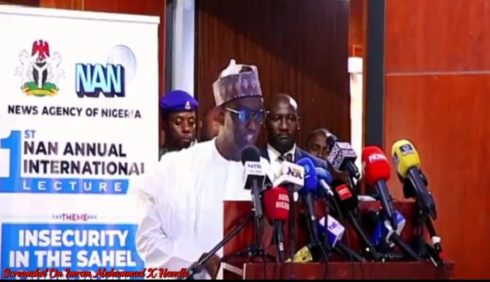According to NSA Nuhu Ribadu, the subsidy regime has long been exploited by international traders and oil marketers to siphon resources from the poor. Nigeria has launched its first direct confrontation with the entrenched corruption within the nation’s fuel subsidy system. Speaking at a recent press briefing, Nuhu Ribadu stressed the significance of this battle, noting that the subsidy system has been a key avenue for financial malpractice for decades.
Nuhu Ribadu highlighted that Nigeria’s unique position in global oil markets has made it vulnerable to exploitation, with fuel subsidies serving as a loophole for corrupt actors to divert funds intended for public welfare. The government’s crackdown on this system is being hailed as a crucial step towards curbing financial mismanagement and redirecting national resources towards more productive sectors of the economy.
Fuel Subsidy Abuse: A Longstanding National Crisis
The misuse of fuel subsidies has been a long-running crisis in Nigeria, costing the government billions of naira annually. NSA Nuhu Ribadu pointed out that this abuse has disproportionately affected the poor, depriving them of essential resources while lining the pockets of a few powerful individuals. He described the situation as one where “the poor pay for the rich,” as subsidies, intended to make fuel more affordable for ordinary Nigerians, have instead enriched a select group of international traders and oil marketers.
This situation has resulted in a massive proliferation of fuel stations across the country, often operating in illicit ways to capitalize on the subsidy system. Nuhu Ribadu noted that Nigeria is one of the few countries in the world where such extensive networks of fuel stations exist, many of which serve as fronts for subsidy fraud and other corrupt practices.
Government’s New Approach to Eradicate Subsidy Corruption
To tackle this issue, the Nigerian government has implemented a multifaceted strategy aimed at dismantling the corrupt networks benefiting from the subsidy regime. This includes stricter regulations on oil marketers and enhanced scrutiny of international fuel traders operating in the country. Ribadu emphasized that the government is prepared to take decisive action, including prosecuting those found guilty of misusing the subsidy system.
The new approach also involves closing down illegal filling stations and regulating the operations of legitimate ones. The government’s goal is to ensure that subsidies, where necessary, benefit the public directly rather than being diverted into private hands. These reforms are expected to pave the way for a more equitable and transparent energy sector in Nigeria.
Excessive Filling Stations: A Symptom of Deeper Corruption
Ribadu underscored the unusual number of filling stations in Nigeria as a clear indicator of the scale of corruption within the fuel subsidy framework. “It’s only in Nigeria where you will see hundreds of thousands of filling stations,” he remarked, highlighting how this abundance is not reflective of legitimate demand but rather a symptom of the fraudulent activities that have plagued the sector.
Many of these stations, Nuhu Ribadu noted, are strategically positioned to facilitate illegal fuel exports and other nefarious activities that drain the country’s resources. By clamping down on these operations, the government aims to reduce the avenues through which subsidies are illegally claimed, while restoring order to the fuel distribution network.
Impact of Subsidy Removal on the Economy
The removal of the fuel subsidy is expected to have wide-ranging effects on the Nigerian economy. While there may be initial public backlash due to potential increases in fuel prices, experts believe that eliminating subsidies will ultimately benefit the economy by reducing fiscal deficits and freeing up resources for infrastructure development and social programs. Nuhu Ribadu assured Nigerians that the government is working on cushioning the effects of this policy change, particularly for the most vulnerable citizens.
By ending the fuel subsidy regime, the government expects to curb inflationary pressures linked to the artificial manipulation of fuel prices, which has historically distorted market dynamics. Additionally, more transparent energy pricing could help attract foreign investment into Nigeria’s oil and gas sector, driving growth and job creation.
Nigeria’s Fight Against Economic Sabotage
Nuhu Ribadu’s statements underscore the government’s broader efforts to combat economic sabotage in Nigeria. Beyond the fuel subsidy system, the government is also focused on eradicating other forms of financial crime that have hampered Nigeria’s development. Nuhu Ribadu reaffirmed that the government remains committed to ensuring that those who steal from the public purse are held accountable.
This renewed focus on transparency and accountability in the management of Nigeria’s oil wealth is expected to have long-term positive effects, not just for the energy sector, but for the broader economy. Nuhu Ribadu’s call for action reflects the government’s resolve to protect Nigeria’s resources from exploitation and secure a more prosperous future for its citizens.
Table of Contents
Discover more from OGM News NG
Subscribe to get the latest posts sent to your email.














